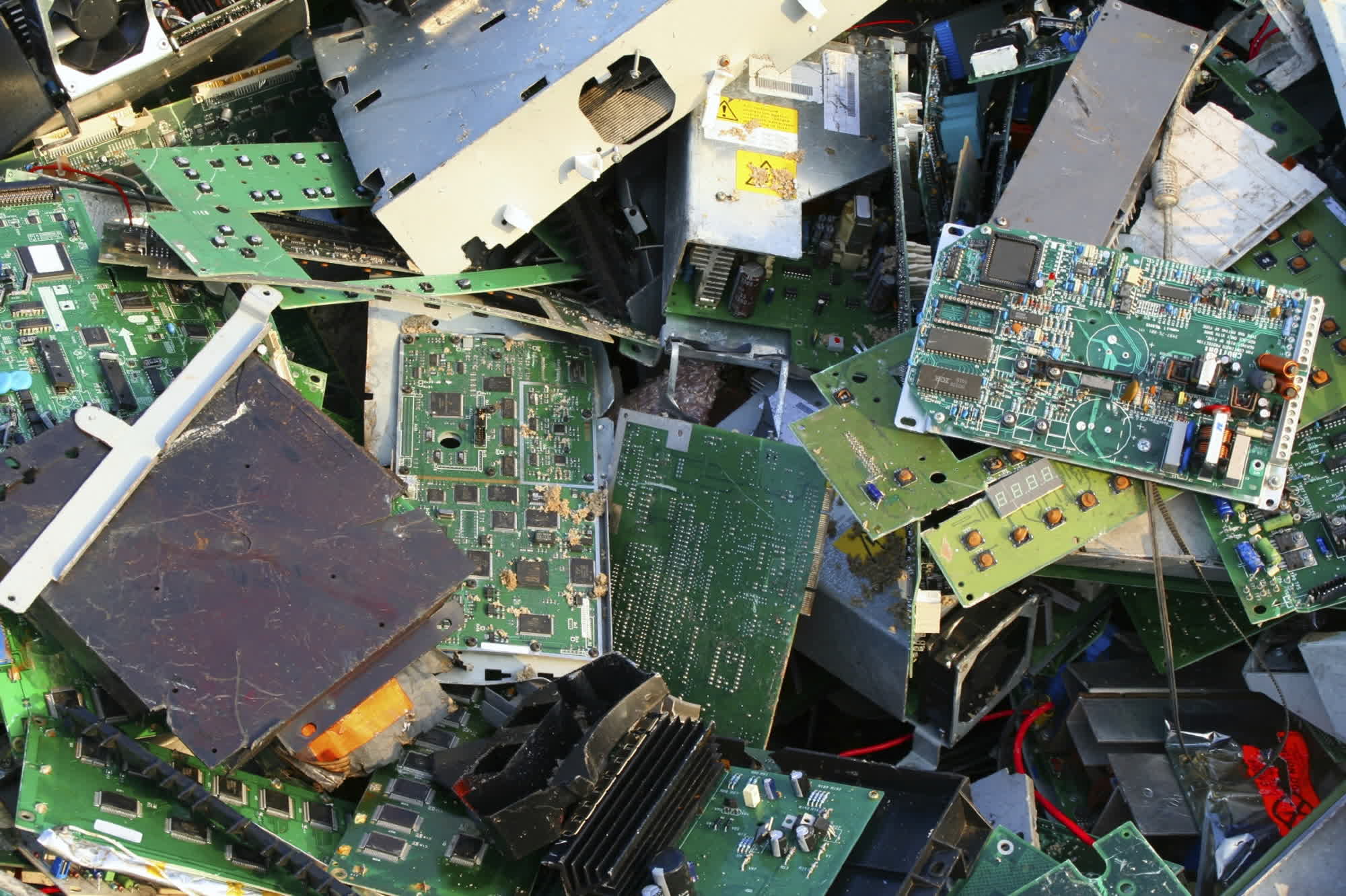Tech News
British Royal Mint launches initiative to extract gold from electronic waste

The Royal Mint’s Transition to E-Waste Recycling
In context: The Royal Mint, a historic institution known for producing British coins since the Middle Ages, is adapting to a world where physical money is becoming less essential. In a bold move to reinvent itself, the Royal Mint is transforming into a professional e-waste treatment facility.
Several years ago, the UK Royal Mint announced its “revolutionary” e-waste recycling plan, and now it has started the process of extracting pure gold from electronic devices and PCBs. The government-owned company is utilizing its industrial plant in Llantrisant, Wales, to extract gold from e-waste and create jewelry products and commemorative coins.
Traditional methods of gold recovery from PCBs are energy-intensive and rely on toxic chemicals, as explained by the Royal Mint’s operations director, Leighton John. However, the Llantrisant facility is implementing a new technique developed by the Canadian company Excir, which is able to extract gold at room temperature and in a more efficient manner.
The Royal Mint aims to process up to 4,000 tons of e-waste annually, extracting 99 percent of the gold from PCBs and producing up to 450 kilograms of the precious metal. The extraction process involves heating circuit boards to remove electronic components, sorting and shredding coils, capacitors, pins, and transistors, and processing them in an on-site chemical plant.
Excir’s technology involves immersing components in a chemical solution, filtering it to obtain pure gold powder, which can then be heated to form solid gold once again. Previously, the UK shipped its e-waste overseas for processing, but now the Royal Mint can manage the entire process internally, according to John.
The Royal Mint highlights the significance of end-of-life electronics, discarded computers, and any items “with a battery or a plug” in contributing to the 50 million tons of e-waste generated annually in the UK. E-waste is projected to reach 120 million tons by 2050, with global e-waste increasing at a rate of 2.6 million metric tons per year, according to a recent UN report.
While efforts are being made to develop easily recyclable circuit board materials, Microsoft’s hardware restrictions for Windows 11 could potentially lead to a surge in e-waste. The Royal Mint’s new gold recycling initiative presents a solution to the escalating e-waste problem and offers a way to diversify its traditional coin-making business. With the declining demand for physical coins, this e-waste processing facility could help Mint employees secure their jobs in the face of changing times.
-

 Destination7 months ago
Destination7 months agoSingapore Airlines CEO set to join board of Air India, BA News, BA
-

 Breaking News8 months ago
Breaking News8 months agoCroatia to reintroduce compulsory military draft as regional tensions soar
-

 Tech News11 months ago
Tech News11 months agoBangladeshi police agents accused of selling citizens’ personal information on Telegram
-

 Breaking News8 months ago
Breaking News8 months agoBangladesh crisis: Refaat Ahmed sworn in as Bangladesh’s new chief justice
-

 Guides & Tips9 months ago
Guides & Tips9 months agoHave Unlimited Korean Food at MANY Unlimited Topokki!
-

 Gaming8 months ago
Gaming8 months agoThe Criterion Collection announces November 2024 releases, Seven Samurai 4K and more
-

 Toys10 months ago
Toys10 months ago15 of the Best Trike & Tricycles Mums Recommend
-

 Tech News9 months ago
Tech News9 months agoSoccer team’s drone at center of Paris Olympics spying scandal
























